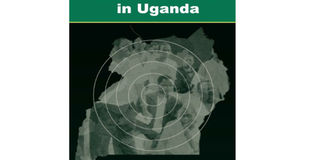Book outlines nuts and bolts of decentralisation

What you need to know:
- Literature. Decentralisation fosters good governance theoretically by all local government councillors directly elected under universal secret ballot by Ugandans aged above 18. But direct or indirect elections do not guarantee good governance.
“The decentralisation policy occupies an important place in the political landscape in Uganda. It affects virtually all important decisions and programmes at both central and local government levels. Yet accurate information about the legislation and policies governing decentralisation has been difficult to obtain,” writes the author Sylvester Wenkere Kisembo.
“This handbook sets out the relevant legislation, and explains the rationale behind the policy. It presents the legal framework of the local government system, and discusses the pertaining acts of parliament. The areas covered are: the legal framework for local government; the local governments act, 1997; good governance indicators; financial management; intergovernmental fiscal relationships; accountability; human resource management; and procurement at local government level,” he adds.
If you are still with us, the author will give you the cliffs notes version of what Decentralisation is and how it lends itself to a pyramidal means to the reduction of the concentration of powers in public officials from the core to the periphery, top to the bottom.
It is essentially a tool chiseling out the perfect model for a participatory democracy as decision making occurs at all levels of society.
Hinged upon a Local Council system, as far its name goes, it evolved from the Resistance Council/Committee (RC) system of the National Resistance Movement (NRM).
It all started in 1982, when the NRM/NRA (National Resistance Army) was still fighting the government of Milton Obote in the bushes of the Luweero Triangle. After coming to power in 1986, the National Resistance Council (NRC), our then parliamentary body, passed two statutes to legalise the system. These were the Resistance Council Statute 1 (1988) and the Resistance Committees’ Judicial Power Statute 1 (1988).
The statutes empowered wananchi with judicial and political dominions through Councils and Committees. Through such structures, power was devolved from the center to lower levels of government and administration.
With such decentralisation, channels were provided for interest articulation and civic participation across the political spectrum.
Why decentralisation?
The author highlights the substance that decentralisation eliminates a centrally planned economy. This is ironic in the context of the NRM’s Marxist propensities at the advent of its rule.
As you might know, Marxism is predicated upon a centrally planned economy.
The NRM professing to be Marxist and practicing non-centralised economic planning is akin to former Soviet Premier Mikhail Gorbachev saying he wanted to save the Soviet Union by implementing perestroika and glasnost.
Theoretically, also, decentralisation adds grist to the administrative efficiencies in our polities by making government less top-heavy and transferring highly qualified to the peripheries (read districts).
Legal framework
The Uganda Constitution of 1995, the supreme law of the land and designator of all Ugandans as sovereign, has Article 176 through Article 207 to introduce and commit the country to implementing a decentralised system. It is founded on the principle of devolution through the structures of local government.
I found the clause “Co-operation among districts (Article 178)” interesting. Clause 2 states: “Article 178 allows two or more districts to co-operate to the extent of becoming body corporate.” This empowers the districts to act as one entity, body corporate being a formal way of saying the districts may cooperate as a single body.
Intellectually speaking, then, two or more districts could vote to be one. If this is the case, then the burden imposed by the weight of decentralisation across so many districts could be resolved in favour of leaner, meaner government.
Of course one may argue that such diminution of the number of districts will mean the diminution of participatory democracy across a smorgasbord of districts. True, but one of the purposes of this clause is to encourage economic development, something that cannot be done once the national purse is stretched by the existence of too many districts.
Good governance indicators
Decentralisation fosters good governance, theoretically by all local government councillors being directly elected under universal secret ballot by Ugandans aged above 18. One might,argue that direct or indirect elections do not guarantee good governance.
Book Title: Handbook on Decentralisation in Uganda
Author: Sylvester Wenkere Kisembo
Year of Publication: 2006
Pages: 81
Price: Shs80,000
Where: Aristoc Bookshop




